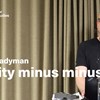hours
‘Ukraine’s Cause is Ours!’ Diaspora and Migration in Swedish Parliamentary Debates, 2014–2022
Nordic Journal of Migration Research 2025 vol 15, issue 2 Abstract The annexation of Crimea, the subsequent insurgency of Russian-backed separatists in the Donbas region of Ukraine in 2014 and the curren
Contact us
Postal address:Box 591, 101 31 StockholmVisiting address:Holländargatan 13, 111 36 StockholmPhone:08-402 12 00E-mail: [email protected].:802013-3198 Opening hours:08:00-11:30 and 12:30-16:00. Find us -
Four decisions that actually matter for climate change
Did you take part in Earth Hour last month? On the 24th of March each year a big part of the earth’s population in the most energy consuming countries turn the lights off for one hour to stress the en

School impacts of violent relgious extremism
How does the spread of violent extremism in the Sahel region in Africa affect the access to education for boys and girls?
Completed: YOUNGWORK
We will study how labour market trajectories unfold during early adulthood, and how labour market outcomes relate to factors on the personal, family, or school level.
Mikael Holmqvist: Djursholm – Sweden’s Leader Community
Mikael Holmqvist is Associate Professor of Sociology and Professor of Management at Stockholm University. ABSTRACTAll around the world there are ”leader communities”, i.e., places where leaders choose
More about cookies
Iffs use cookies to se what our users read on our site and to view visitor statistics. We use cookies to develop our site according to how you use it. We do this to create the best possible experience
Completed: The worst lie is the documentary – what role does the subjective documentary film play in a post-truth era?
How can artistic narration, based on subjective perspectives, develop the documentary film? The project will spread knowledge and reach new arenas where artistic research is usually not portrayed.

Reality minus minus - James Ladyman, Professor of Philosophy
There is plenty of techno-optimistic takes on virtual worlds. They will offer us opportunity for new and exciting experiences, as real as reality, it is said. But what about the costs? In a talk from
Richard Arneson: Should we reward the deserving? Some puzzles
Richard Arneson is a political philosopher with a special interest in theories of social justice. AbstractDo plausible fundamental principles of justice incorporate the idea of rewarding the deserving?








